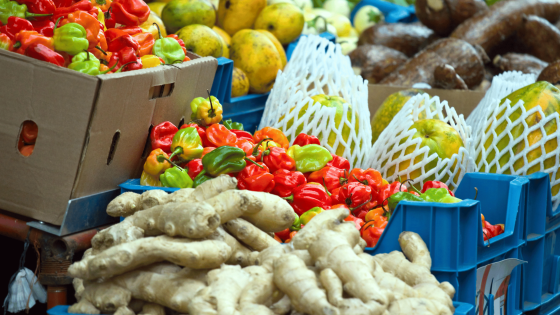
Gender and climate change
When it comes to the destructive consequences of climate change on agricultural production around the world, Africa is no exception. Women farmers are particularly vulnerable as a result of climate change’s potential to accentuate existing gender imbalances and impair agricultural production in Africa. As a result of climate change, women farmers have unique problems, but there are insights and solutions that can help them adapt and become resilient.
Droughts, floods, and storms have grown more regular as a result of climate change, and they can have devastating effects on agricultural productivity and livestock. Women farmers are typically the ones who suffer the most when these kinds of things happen because they have fewer resources and less access to support services. Cultural and institutional barriers limit farmers’ ability to adapt to climate change and enhance resilience, particularly for women farmers.
Data on how climate change affects African farmers suggests that female farmers face the brunt of the effects. Women farmers in Africa are more likely than men farmers to endure food insecurity and produce lower yields. This is due, in part, to less opportunities to employ resources such as land, money, and technology to prepare for the effects of climate change.
Ways to mitigate the effects of climate change on women
Africa is not immune to the devastation caused by climate change on agricultural productivity around the world. Women farmers are especially susceptible since climate change has the potential to exacerbate current gender disparities and reduce agricultural production in Africa. Women farmers have specific challenges as a result of climate change, but there are insights and solutions that can help them adapt and become resilient.
One alternative is to encourage climate-smart agricultural techniques that are inclusive of both sexes and designed to assist farmers deal with climate change. Conservation agriculture, agroforestry, and water management are all examples of climate-smart agriculture strategies that help farmers lessen their carbon footprint, boost their yields, and adjust to the effects of climate change. Women farmers can benefit greatly from these methods of building resilience and adapting to erratic weather patterns, and they can also contribute to long-term sustainable development.
Governments and development partners must remove cultural and institutional barriers that impede women from participating in decision-making processes that affect their livelihoods. This includes increasing women’s educational prospects and encouraging their participation in political and economic decision-making.
As a result, women’s economic participation and empowerment in African agriculture are being severely hampered by the effects of climate change, which exacerbates existing gender inequities. Women farmers are particularly vulnerable to the effects of climate change, but there are ways to help them adapt and strengthen their resilience. Building resilience and promoting sustainable development in African agriculture requires investment in gender-responsive agriculture programmes, promotion of climate-smart agriculture practises, and addressing of cultural and institutional barriers that limit women’s participation in decision-making processes. Together, we can create a more sustainable and equitable future by addressing the effects of climate change on women in African agriculture.





















